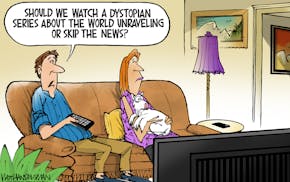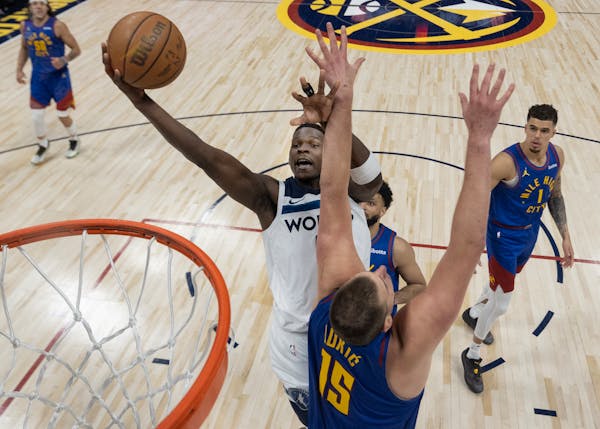I wanted to buy a T-shirt saying "Does this T-shirt make me look fat?" -- except it was too small.
It was my most recent low-self-esteem holiday shopping moment. Women have a lot of low-self-esteem shopping moments thrust upon them by smart-alecky store mirrors and inner demons.
This is especially true when the mirrors are positioned under hideous fluorescent lighting, thereby giving our flesh the seductive texture of pot cheese and our skin the greenish glow of Area 51.
Under such conditions, women like Natalie Portman catch themselves looking bucktoothed and cross-eyed. Had Kim Kardashian glimpsed herself unawares in a bad full-length mirror at Kohl's, she would have stayed married, fearful that no other guy would ever look at her.
This explains why, if you observe women trying on shoes, for example, you'll see us playing with our hair when we look in the mirror.
We're trying on shoes but not looking at our feet. It's as if smoothing our bangs will somehow make a pair of ankle boots look better.
We'll fluff our ponytail when buying a bracelet. Female CIA officers probably tuck a stray lock or two behind their ears when trying on hazmat suits. This is all part of an elaborate effort to distract ourselves while attempting to preserve a semblance of composure and self-reliance.
Is it such a surprise, really? After all, there's not much we can do about our jaw line or height, not, at least, before somebody else sneaks into the mirror in front of us.
Men don't do this. Men don't torture themselves this way. Most straight men, for example, have never even tried on a T-shirt.
They walk into Odd Lot, Job Lot or some other store with "Lot" in the title, go directly to the bin where 2,000 blue shirts are folded by size, hold one up to the light, look at it, say "It's big enough. It'll fit." They then buy four of them and leave.
They're dressed for the year.
The only time guys are forced to go out and buy new T-shirts is after some woman has discarded the T-shirts they've had since high school, the ones with the gaping, shredded holes under the armpits.
When they discover the loss of these garments, they become as histrionic as Hamlet when he discovered his mother married his uncle.
Men do not perform acts of self-assessment, self-actualization, atonement, penance or exorcism during their shopping trips. That's because men see stores as, well, "stores" and not shrines or palaces of judgment.
For men, stores are places where products are available for purchase, and some of these products are designed just for them.
Women, in contrast, want to fit ourselves into the shapes and sizes we're told we should be. Women also try to be worthy of the item we want to purchase.
This kind of insecurity has, I believe, kept us from being elected to the highest of political offices: Deep down inside, an intelligent and accomplished woman can still wonder whether she is good enough for a Chanel suit.
This is sad. This is a woman who will not be trusted to make decisions concerning the tactical use of nuclear weaponry.
We need to do better. We need to stop trying to fit ourselves into the world and start making sure the world begins to fit us.
Just think about how many women you've heard announce, especially around this time of year, "Ooh, I want to fit into a size 10, a size 6, a subzero by New Year's!"
You've never heard a guy say "I want to be a 42 short by Christmas."
Men practice self-acceptance. That's why it's difficult to insult men.
You can say to a man, "Fred, I personally will buy you a new jacket so I don't have to see that particular herringbone pattern anymore," and Fred, with a grin, will reply "Bought it in '92. Still fits. I can't button it, but still."
He's not upset. He sees your remark as a compliment.
Apparently some men feel about their wardrobe the way they feel about a stack of 30-year Treasury bills: The less they do with it, the better.
Let's celebrate the season by banishing inner demons and ignoring unflattering mirrors. After all, they're no reflection on us.
* * *
Gina Barreca is an English professor at the University of Connecticut.

BWCA's future likely hinges on election
Saving the dinosaurs: Why there's a future for community newspapers
Readers Write: Gun storage laws, Uber and Lyft, 24/7 businesses, the pipe organ


